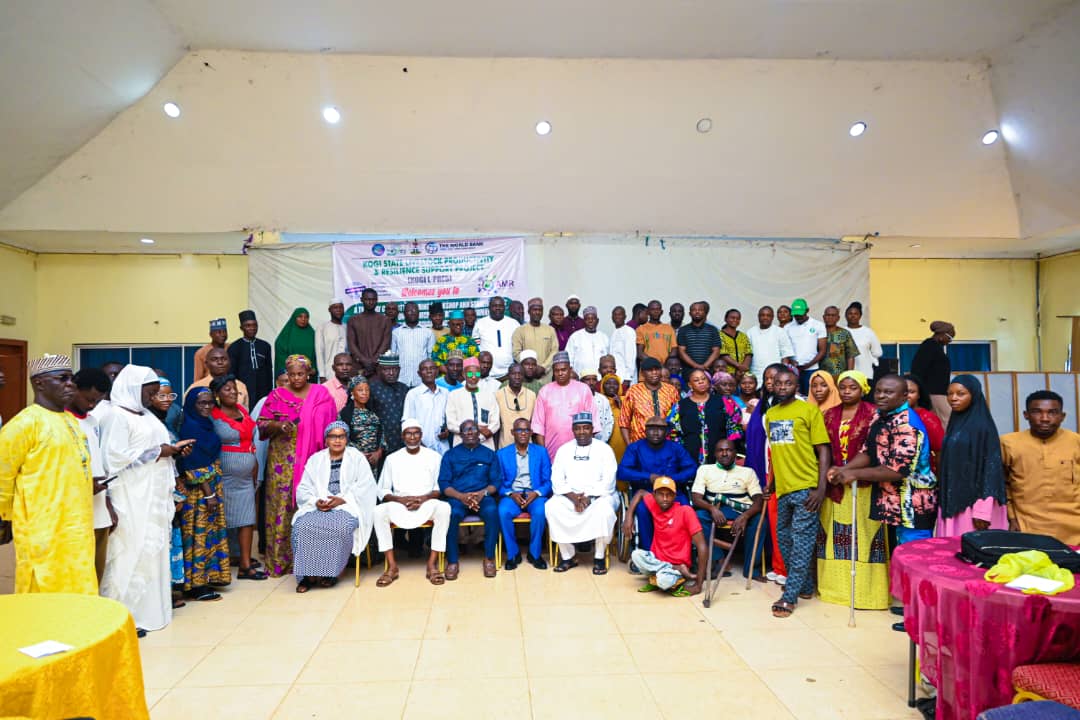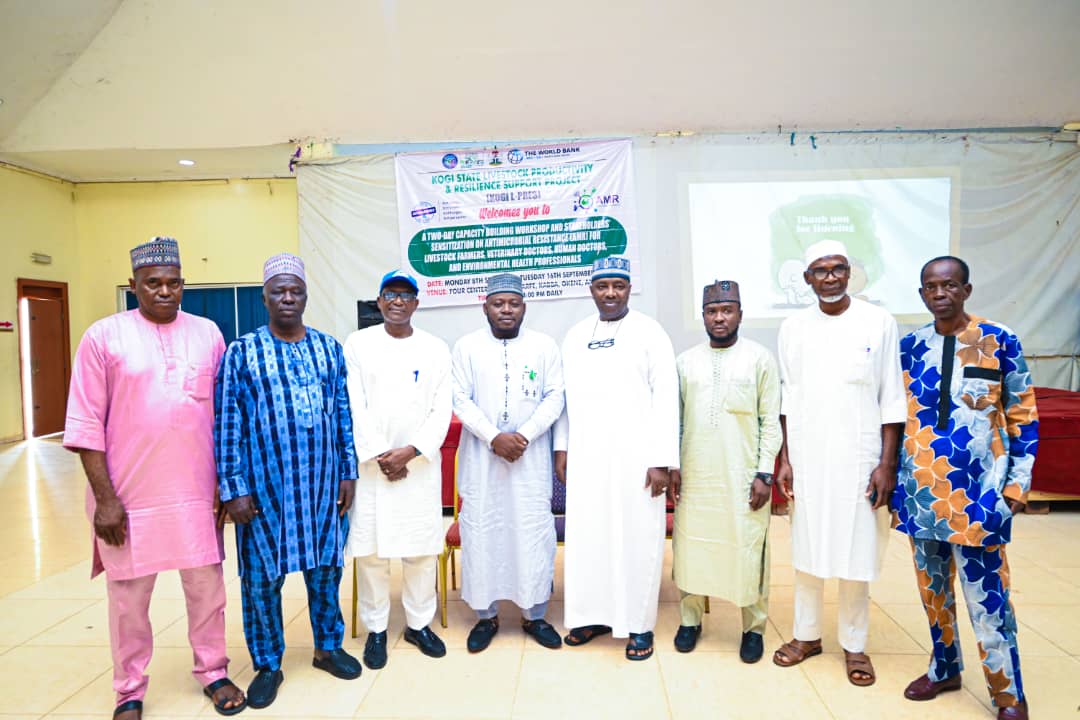
The Kogi State Livestock Productivity and Resilience Support Project (Kogi L-PRES) has organised a one-day capacity building workshop and stakeholders’ sensitization on Antimicrobial Resistance (AMR) for livestock farmers, veterinary doctors, human doctors, and environmental health professionals.
 The Project Coordinator of Kogi L-PRES, Mr. Abdulkabir Onoruoyiza Otaru, on Tuesday in Lokoja, said the training aims to educate stakeholders on the safe use of antibiotics and other drugs in livestock production.
The Project Coordinator of Kogi L-PRES, Mr. Abdulkabir Onoruoyiza Otaru, on Tuesday in Lokoja, said the training aims to educate stakeholders on the safe use of antibiotics and other drugs in livestock production.
Otaru emphasised the importance of the training, citing the knowledge gap among livestock farmers on the use of AMR drugs.
He noted that the project would engage stakeholders to build their capacity on the safe use of antibiotics and other drugs, ensuring food safety and human health.
“The training would be conducted in four centers across the state, targeting not less than 400 participants in each category, who would then cascade the training to other farmers at the local government and community level.
“The training is crucial in addressing the issue of antimicrobial resistance, which poses a significant threat to human and animal health.
“The World Bank, in collaboration with the Federal and State Governments, is supporting the project to build the capacity of stakeholders along the livestock value chain,” Otaru said.
 He commended Gov. Ahmed Ododo for his full support for the project, demonstraing his administration’s commitment to the project by regularly paying the counterpart fund.
He commended Gov. Ahmed Ododo for his full support for the project, demonstraing his administration’s commitment to the project by regularly paying the counterpart fund.
He added:.”The project expects to train not less than 2500 farmers on AMR, who would then adopt safe practices in livestock production.
“The training would also promote food safety and reduce the risk of antimicrobial resistance.
“The Project Coordinator urged the media to give the program wider publication, emphasizing that it is not just about productivity or profit-making but about saving lives”.
In his presentation, Dr Agu Yakubu, Animal Health Department, Federal Ministry of Livestock Development , highlighted the growing concern of antimicrobial resistance, where microorganisms develop resistance to antimicrobial agents, making infections harder to treat.
He identifies key causes, including: overuse and misuse of antimicrobials, poor infection control practices, lack of new antimicrobial development, among others.
Yakubu emphasized the need for a “One Health approach” involving human, animal, and environmental health sectors working together to address AMR.
According to him, “By understanding AMR and taking collective action through awareness campaign, we can mitigate its impact and ensure effective treatment of infections”.
A participant, Mr Daniel Arome, praised the government for organising the sensitization workshop, stating that it has broadened their knowledge.
He said the training has enlightened them on best practices for feeding and administering drugs to livestock for optimal productivity and safety.
Arome, the Coordinator of Poultry Farmers, Lokoja LGA, pledged to disseminate the knowledge to other farmers in his cluster group at the grassroots level.
